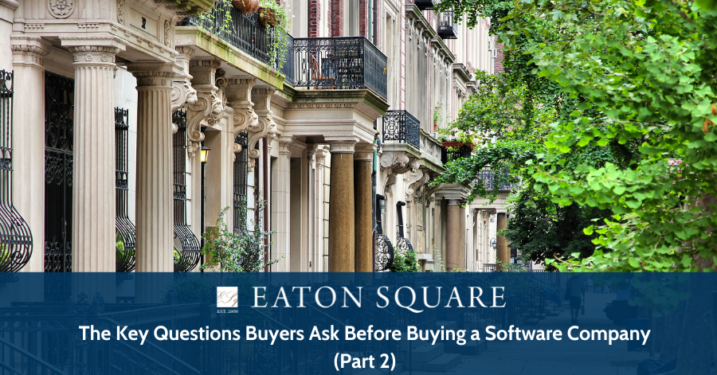
In the first part of this series, we discussed five key questions that buyers typically ask when evaluating a software company for acquisition. Today, we’ll continue by exploring the remaining questions that focus on your company’s market position, product uniqueness, scalability, team structure, and investment history. Understanding these questions and preparing strong answers will position your company as an attractive target for buyers, especially private equity firms.
6. What’s your current market share in your major market, and who are your main competitors?
Buyers are keen to understand your position within the market. They’ll ask about your current market share to gauge how dominant or competitive your company is. PE firms often seek companies that have captured a significant market share in a growing industry, as this indicates a strong competitive position. Additionally, knowing who your main competitors are and how you stack up against them provides buyers with insights into the challenges they might face post-acquisition, and possible opportunities to further accelerate growth via bolt-on purchases.
7. What’s unique about your product compared to competitors?
Potential buyers are typically interested in looking beyond a company’s Unique Selling Points as listed in their marketing materials. Sellers can help potential buyers more clearly perceive value when provided with narrative as to why different sub groups of customers choose your product over your competitors or alternative means of solving the problem that your product address. Support your narrative with a few well-chosen case studies, and even better if these case studies have compelling customer ROI numbers.
8. How scalable is your infrastructure, and what’s your current customer support load?
Potential buyers want to know if how your cost structure will change as the business grows. It is worth highlighting situation where your economics improve with scale. Conversely, potential buyers are likely to discount their valuations to the extent they think a business requires re-platforming or investments in addressing customer support issues and in the absence of better information they make well err on the conservative side.
9. What’s your current team structure, and are key personnel interested in staying post-acquisition?
The strength and stability of your team are essential considerations for buyers. They’ll want to know about your current team structure, including the roles of key personnel and their willingness to stay on after the acquisition. Continuity in leadership and key roles can smooth the transition and maintain business momentum post-sale. PE firms often value companies with experienced management teams that are committed to the company’s long-term success, as this reduces the risk associated with the acquisition. Ensuring that your team is motivated and aligned with the company’s future can make your business more attractive to buyers.
10. How much capital have you raised from external investors?
The amount of capital raised and the involvement of external investors can impact the sale process. Buyers will ask about your funding history to understand the financial obligations and expectations that come with external investment. PE firms are particularly interested in companies that have raised capital from reputable investors, as this can indicate strong growth potential and validation of the business model. However, they will also assess any outstanding equity stakes or convertible notes that could affect the valuation or sale process. Transparency in this area helps in building trust and setting clear expectations for both parties.
Conclusión
These ten key questions form the foundation of what buyers, especially private equity firms, look for when evaluating a software company for acquisition. By preparing thorough and honest responses, you can present your company in the best possible light and increase your chances of a successful sale.
At Eaton Square, we specialize in helping software companies navigate the complex process of selling their business. Our experienced team can guide you through these critical questions, ensuring that you’re well-prepared and positioned for the best possible outcome. Contact us today to learn more about how we can assist you in selling your software company.
